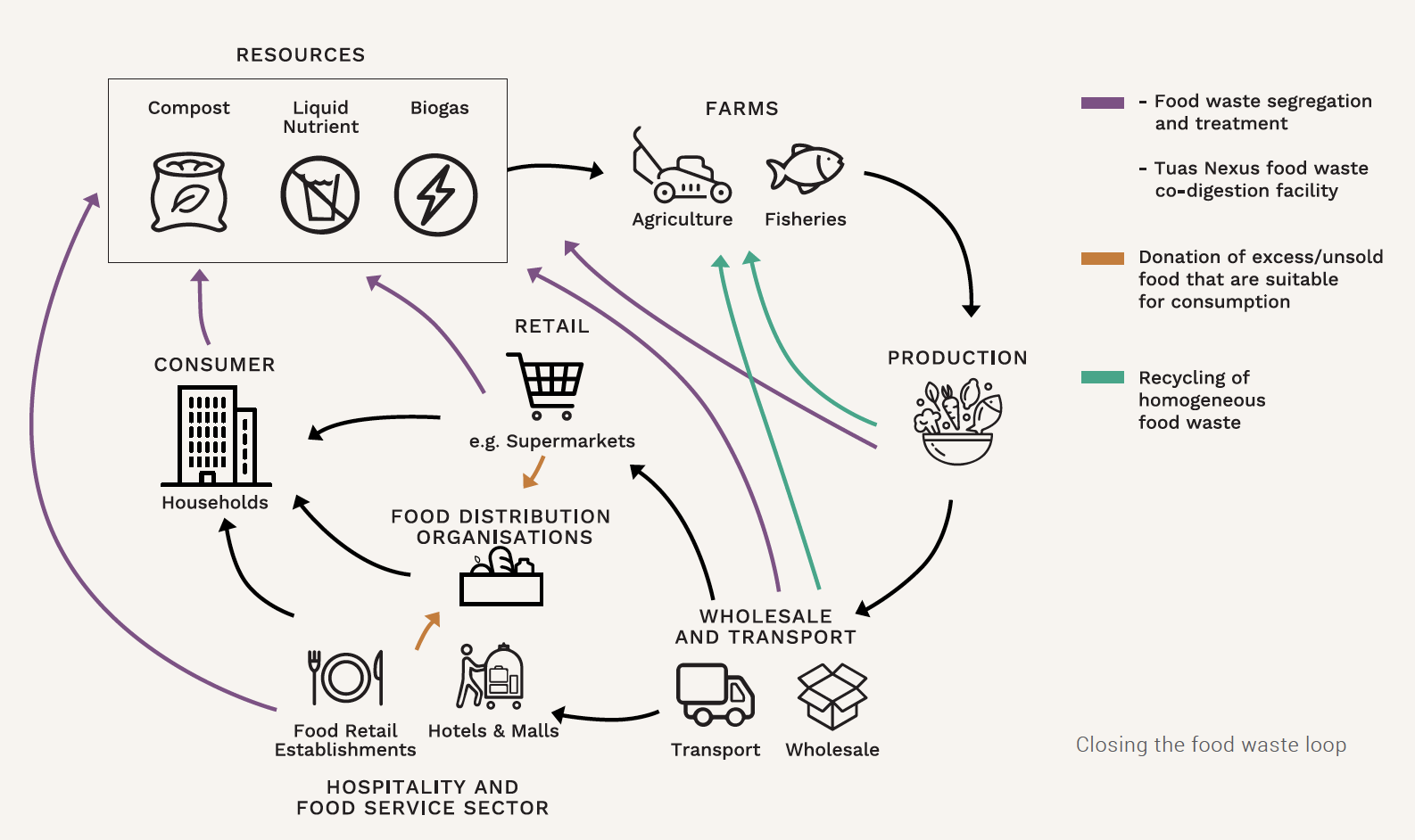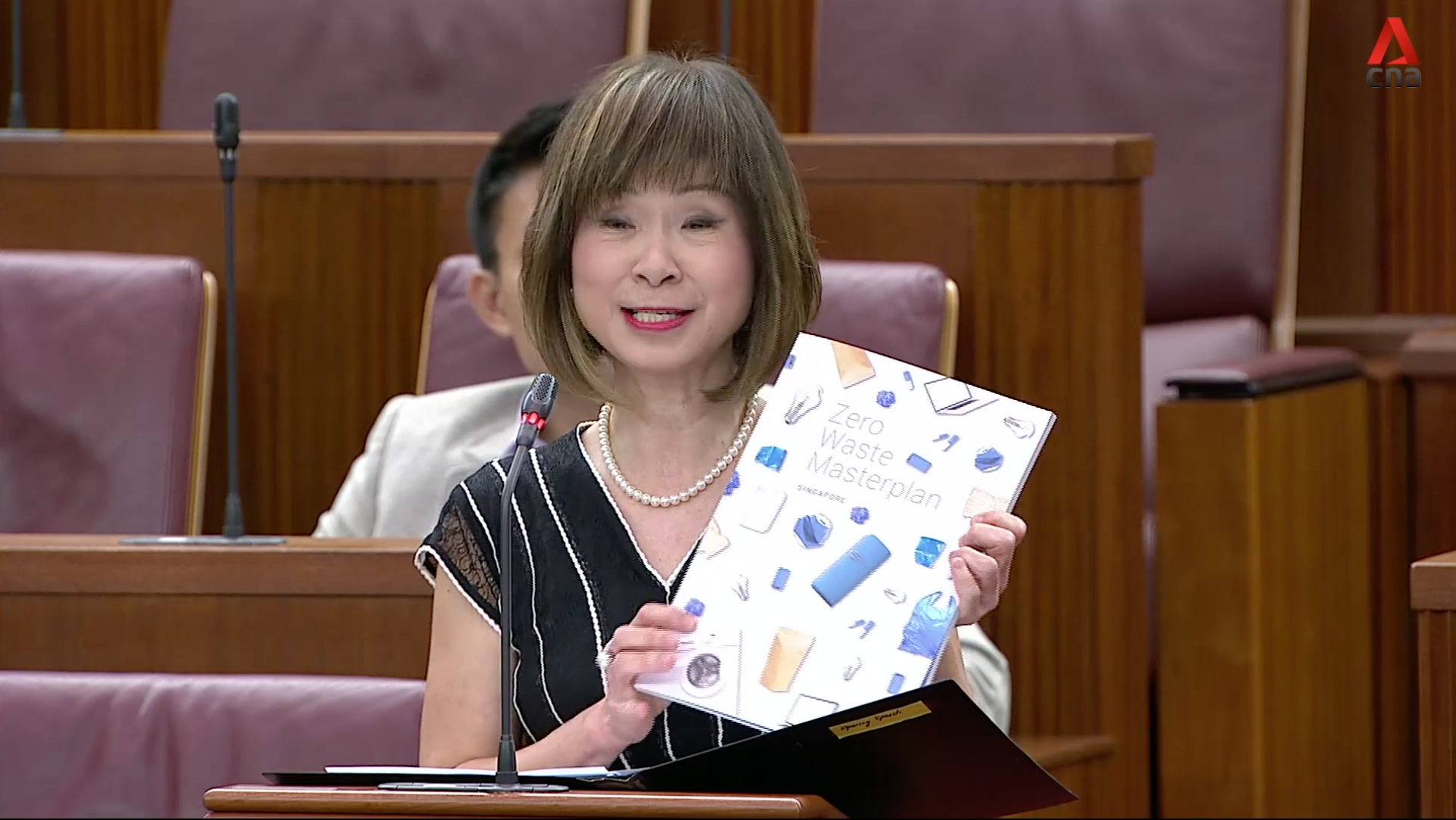It seems that Singapore has never taken the environment more seriously.
Three weeks after Prime Minister Lee Hsien Loong's National Day Rally speech, where climate change was one of the main themes highlighted, the Ministry of Environment and Water Resources (MEWR) has launched the country's first-ever Zero Waste Masterplan on August 30, 2019.
At the launch, Senior Minister of State for MEWR, Amy Khor, said that the government has made a significant move by introducing a new Resource Sustainability Bill.
Resource Sustainability Act passed
The bill, now known as Resource Sustainability Act, was debated and passed in Parliament on Sep. 4, 2019.
The core of the bill, in Khor's words, is to "reduce, reuse, and recycle" and move towards zero waste as an approach.
Khor also reiterated the importance for a paradigm shift to redefine waste into resources.
In Khor's opening speech for the second reading of the Resource Sustainability Bill, she said:
"Figuratively speaking, we can look at Semakau not as a landfill for trash but as a treasure island right in our very own backyard."
Pulau Semakau is Singapore's one and only landfill, and it's expected to run out of space by 2035.
The Resource Sustainability Act will, for the first time, put in place a systems-level approach that mandates key responsibilities to enable re-use and recycling nation-wide, Khor said.
This will hopefully help to extend the lifespan of Semakau landfill and slow down the rate of resource depletion for economic growth.
Recovering resources from waste can not only bring about some good for the environment, but economic benefits and opportunities as well.
Preliminary studies have discovered that an estimated S$40 million of net benefits can be reaped just by extracting useful materials from e-waste only.
The Act introduces a regulatory framework on producers upstream, compelling businesses to recover resources from waste — specifically e-waste, packaging waste, and food waste.
The Act also authorises the National Environment Agency (NEA) officers with powers to enforce the new regulations and penalties for future offenders.
Details were fleshed out in Khor's speech and here are some key features of the Act:
Recovery of e-waste
The new Act established the Extended Producer Responsibility (EPR) framework for e-waste.
The EPR framework will hold retailers and producers accountable for the waste they produce.
It will be compulsory for producers of covered electrical and electronic equipment (EEE) to collect and treat e-waste.
The Act includes a clause which mandates large electronics retailers with a floor area bigger than 300m2 have to provide in-store e-waste collection points.
Retailers have to offer a 1-for-1 collection of unwanted electronic products at no cost when they deliver a product of the same type to the customer under Clause 14.
Producers that supply a large amount of EEE will need to join the Producer Responsibility Scheme (PRS) and finance the collection and recycling of e-waste.
Those which supply less than 10 per cent of the electronic products in the market will be exempted from the PRS.
Packaging waste
On tackling packaging waste, Khor said in her speech that Singapore "cannot continue with business as usual" and "we can and must do more to better manage packaging, including plastics".
Packaging waste constituted one-third of domestic waste in 2018.
55 per cent of it was plastic packaging, 25 per cent paper and the remaining 15 per cent other types of packaging such as glass and metal.
The new Act will legislate that, from 2020 onwards, producers of specific packaging that have an annual turnover of over S$10 million, are required to report data on packaging (Clause 20 of Part 4).
They are also required to submit plans to reduce, reuse or recycle packaging waste under Clause 21 of Part 4 of the Act.
This will support the EPR framework which ensures producers are responsible for the packaging waste, including the oft-vilified plastics.
MEWR plans to have the EPR implemented no later than 2025.
Convert food waste to compost, nutrients and biogas
With the new Act, it will be compulsory to segregate food waste for treatment under Part 5.
2018 saw food waste comprising one-fifth of the total waste Singapore generated. But only 17 per cent of food waste was recycled.
From 2021 onwards, it will be mandatory for developers of upcoming commercial premises such as shopping malls and hotels to allocate space for on-site food waste treatment systems in their design plans under Clause 26.
Large commercial and industrial generators of food waste are required, under Clause 27, to treat the food waste from 2024 on.
In doing so, the food waste will hopefully be processed into useful compost, nutrients as well as biogas which can be used again for agriculture and fisheries.
 Photo from MEWR
Photo from MEWR
Nonetheless, the best way to reduce food waste is to not overproduce, or over-order on the consumer end.
Besides the Resource Sustainability Act, the government is also investing in research and development to improve our waste management infrastructure.
Ramping up waste management capabilities
New technology and an industrial symbiosis approach are adopted to maximise efficiency in managing waste.
This includes that bringing companies together in a form of mutually beneficial collaboration, where the resources produced from one's waste treatment can be utilised by another company.
The Tuas Nexus, a new integrated waste management facility expected to be operational by 2027, is an example.
Tuas Nexus is a combination of two facilities—NEA’s Integrated Waste Management Facility (IWMF) and PUB’s Tuas Water Reclamation Plant (TWRP).
Used water from IWMF will be sent to TWRP for treatment, and food waste from IWMF will be sent to TWRP to be co-digested with water sludge to produce biogas which helps to generate the electricity used at Tuas Nexus facility.
NEA recently looked into developing a local plastics recycling industry, which includes mechanical recycling which converts waste plastics into plastic pellets and chemical recycling that turn plastic waste into fuel.
On the research front, a S$45 million Closing the Waste Loop (CTWL) R&D Initiative was launched in December 2017 to fund projects and solutions that can help reduce our waste production.
This fund supports scientists from A*STAR in their efforts to extract recyclable components from non-recyclable plastic packaging such as potato chips.
Researchers from Republic Polytechnic are also financed to look into transforming incineration ash into construction materials that can be added to sustainable ready-mixed concrete.
Separately, a growing waste management industry will help create new jobs such as engineers and technicians as well.
Around 30,000 people are expected to benefit from higher-value jobs as such.
Top photo: Screenshot from Youtube/ Gov.sg
If you like what you read, follow us on Facebook, Instagram, Twitter and Telegram to get the latest updates.
